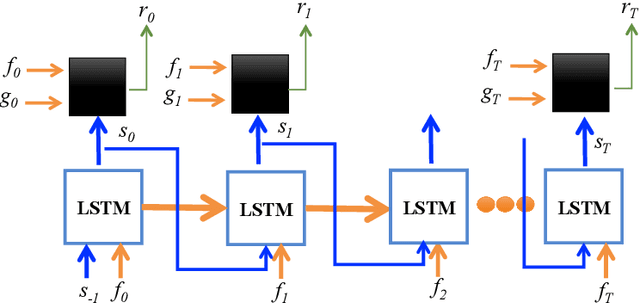Reinforcement Learning To Adapt Speech Enhancement to Instantaneous Input Signal Quality
Paper and Code
Jul 27, 2018

Today, the optimal performance of existing noise-suppression algorithms, both data-driven and those based on classic statistical methods, is range bound to specific levels of instantaneous input signal-to-noise ratios. In this paper, we present a new approach to improve the adaptivity of such algorithms enabling them to perform robustly across a wide range of input signal and noise types. Our methodology is based on the dynamic control of algorithmic parameters via reinforcement learning. Specifically, we model the noise-suppression module as a black box, requiring no knowledge of the algorithmic mechanics except a simple feedback from the output. We utilize this feedback as the reward signal for a reinforcement-learning agent that learns a policy to adapt the algorithmic parameters for every incoming audio frame (16 ms of data). Our preliminary results show that such a control mechanism can substantially increase the overall performance of the underlying noise-suppression algorithm; 42% and 16% improvements in output SNR and MSE, respectively, when compared to no adaptivity.
 Add to Chrome
Add to Chrome Add to Firefox
Add to Firefox Add to Edge
Add to Edge